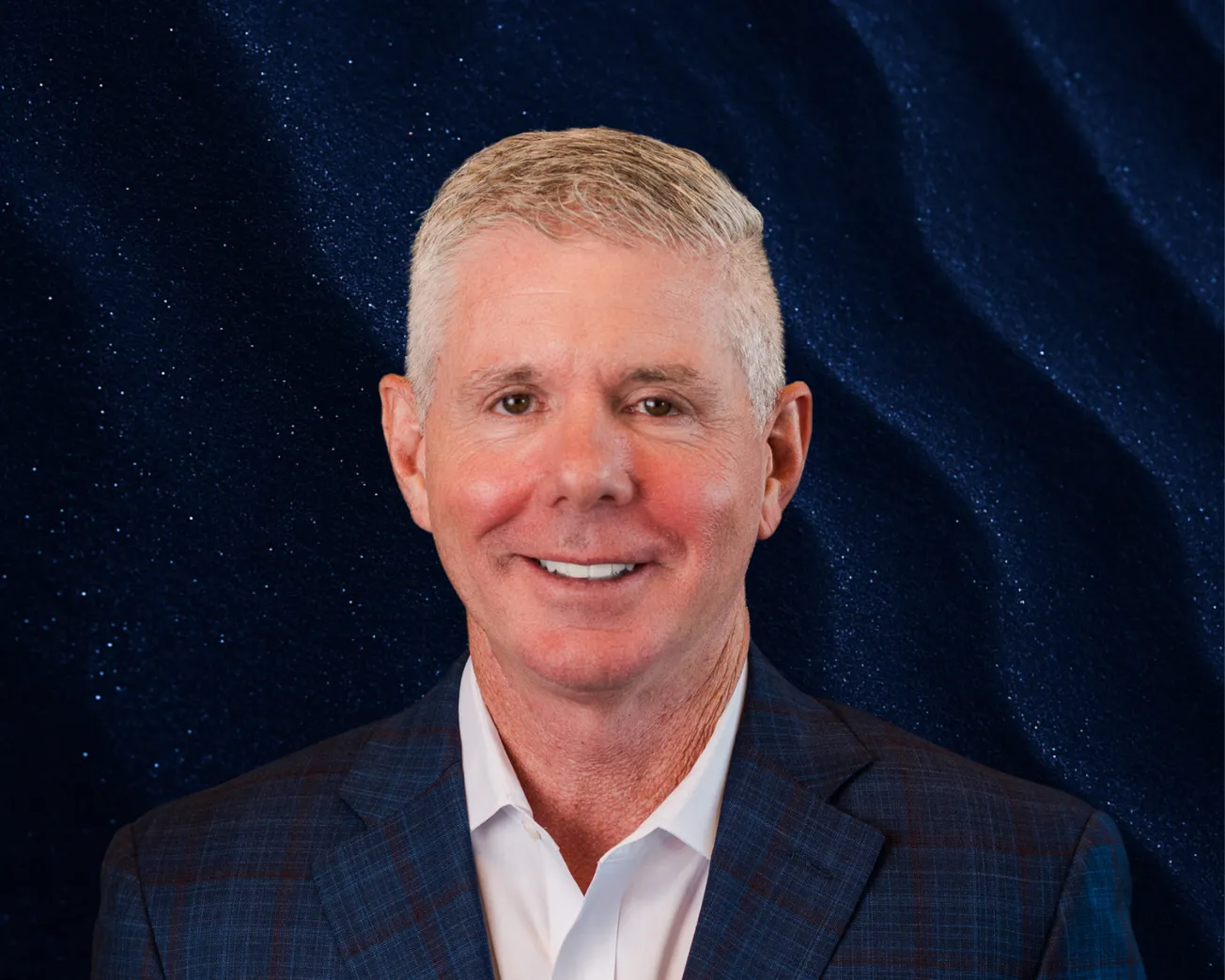Table of Contents
Elizabeth Grove, Chief Sustainability Officer of Lubrizol, sat down with Onyx for a feature-length interview.
Could you start by giving us a bit of background on your career journey prior to Lubrizol?
I am a lawyer by training. Prior to Lubrizol, I was with a large international law firm; then, I spent time in the federal government. I joined Lubrizol about 18 years ago.
I started in the litigation group, overseeing corporate litigation. Then, in 2015, I shifted my focus to growing our life science business. Back then, the business was new for Lubrizol, and it needed a different kind of compliance oversight than, say, engine oil additives. One of the unique things about life science is it includes the beauty business - and, at that time, our beauty customers were ahead of the sustainability curve, compared to most markets. They were already talking about sustainability; how important it was to consumers; and how it had to be built into the products they were buying from us.
They looked to us as an innovation leader and said, “We need to solve issues related to sustainability.” So, we started our own sustainability program in the beauty business. Fast forward to 2020, and our CEO at the time asked me to come back to corporate; to take over the good work that had been started in corporate sustainability, and to make it more comprehensive across the entire organization.
My legal background has been helpful, but one of the great advantages of working for Lubrizol is that you get to learn about so many different things. Growing my knowledge about sustainability has been an unanticipated benefit of my time here.
How does Lubrizol define sustainability? What’s the mission, and how do you measure progress?
For Lubrizol, we define sustainability as doing what’s right, today, while understanding what’s important for the future. That encompasses a lot. Our purpose statement probably captures it best: we deliver sustainable solutions that advance mobility, improve well-being, and enhance modern life.
A couple of things make us different. First of all, we’re a specialty chemical manufacturer. We take components, and we formulate them to create chemistry that meets customer needs and solve our customers’ most pressing sustainability challenges. Because we’re not cracking molecules - although we do some reacting and blending - our corporate carbon footprint is actually very small.
Reducing our own footprint matters greatly, but the biggest point of impact is what our products can do; how they enhance sustainability when our customers use them; or when consumers use the products that our ingredients go into. We sit in the middle of the supply chain, which gives us a unique vantage point: we can see where changes in our formulations make a big difference in overall sustainability.
What about the digital transformation: notably on AI, data analytics, and automation? How do you keep up?
Data analytics and automation are extremely important to Lubrizol. They help us understand the key components of sustainability; identify those maximum points of impact; and figure out where we can make changes or increase efficiency.
One example is GHG emissions data. We’ve built an internal program that shows us three things: how much energy we’re using; what kind of energy; and where it’s being used - whether it’s the region, site, or, sometimes, right down to specific equipment. We have a corporate goal: a 20 percent reduction in our Scope 1 and 2 greenhouse gas emissions by 2030, based on our 2018 baseline. However, while the goal is global, the action is localized to the site- and regional level. With the data, we can go back to a plant and say, “We think there might be some opportunities for improvement. Here’s what we’re seeing.” Then, they can test those suggestions out. It helps people see those site-level efficiency gains are directly contributing to the corporate goal.
Another tool is Life Cycle Assessment (LCA). Because our data coming from our plants is strong, our LCAs are strong. We built our LCA tool internally, and it lets us hone in on the environmental impact of a specific product. It analyzes everything from manufacturing to energy and materials used; and shows us where to make the most impactful changes – sometimes strategically, sometimes competitively – to reduce that product’s carbon footprint.
In the innovation process, our team is constantly solving sustainability challenges, and we’ve made that process, itself, more sustainable, by using technology like digital twins. We can take lifecycle data, manipulate it digitally, and explore new solutions without physically changing materials or running bench experiments. It makes us faster, and more efficient, with resources.
As AI evolves, our teams across Lubrizol—from IT to technology, procurement, supply chain and beyond—are actively pursuing ways to leverage it to make Lubrizol more efficient.
There’s a lot of focus on gasoline and diesel. How do Lubrizol’s advanced additives extend engine life and boost efficiency?
This is something we’re especially proud of. Since 1928, we’ve been making engine oil additives. Back then, the average internal combustion engine lasted about 3,000 miles. You couldn’t even drive around the block without parts seizing up from heat.
Fast forward to today; engines can now last for 300,000 miles. Why? Because of additives. We’ve developed detergents and dispersants that go into the additive package inside the engine oil. They help engines run cleaner, cool down quicker, and resist buildup. Cleaner engines mean fewer tailpipe emissions - CO2, SOx, NOx - and much better fuel efficiency. When engines run cleaner and last longer, you reduce waste and greatly improve fuel economy.
While we’re already working on and producing lubricants for hybrids and electric vehicles (EVs), there’s still innovation to be had in internal combustion engines. There will be parts of the world using them for generations and making them cleaner and more efficient matters.
You mentioned Lubrizol’s diverse customer base. Could you expand on that?
Absolutely. Think about this: if you took a shower this morning, brushed your teeth, and used lotion - you’ve already used three Lubrizol products.
We started in passenger car, and heavy-duty, diesel. Today, we are in industrial and transport, polymers and plastics, pharmaceutical excipients, personal care, coatings, footwear and so much more. In the industrial and transport sectors, we make lubricants for agricultural, marine, and industrial equipment. Since 2004, we’ve also been in polymers; notably, plastics for car parts, resins for plumbing and fire sprinkler systems, implantable medical devices... In pharmaceuticals, we make the non-active ingredients in tablets and injectables. We can make controlled-release tablets or ensure that injectables use the minimum active ingredient needed, meaning that there’s less waste and help toward better patient outcomes. And, in personal care, we make thickeners in shampoo, toothpaste and lotions, where biodegradability and marine safety are critical.
Sustainability challenges vary greatly market to market. For engines, it’s efficiency and emissions. For beauty, it’s biodegradability. For plastics, it’s recyclability and waste reduction. We’re solving for all of them.
For Lubrizol, what role do partnerships play?
A big one. Partnerships are really extensions of our own innovation.
On the additive side, we’re using more sustainable raw materials like re-refined base oils, which cut the carbon footprint of additive packages. On the beauty side, we just announced our Carbopol BioSense polymer, a readily biodegradable rheology modifier. Customers wanted something biodegradable, so we partnered with Suzano, in Brazil. They use eucalyptus leaves to create thickeners with the right sensory properties.
That’s the kind of collaboration we look for; where we can extend our reach and accelerate innovation together.
Looking ahead 10 years, how do you see Lubrizol’s role in evolving sustainability?
First, we’ll always keep working to reduce our own footprint. We’re manufacturers, so we have a responsibility to be as efficient and responsible as possible.
Our greatest impact is through our products. Our guiding principle is understanding customers’ challenges and delivering solutions to help their products achieve their sustainability goals and customer demands.
We have a goal that 100 percent of our corporate innovations must be reviewed under our sustainable solutions criteria. That means every new product is to be assessed against sustainability benchmarks - and, importantly, it also demonstrates we’re always connected with our customers: asking them what their greatest challenges are and figuring out how we can help to solve them.
That feedback loop keeps us honest. It ensures sustainability is not an afterthought, but rather a starting point for every innovation. And that’s how we’ll continue to guide ourselves: solving our customers’ challenges, making our products more sustainable, and enhancing modern life in the process.








Comments